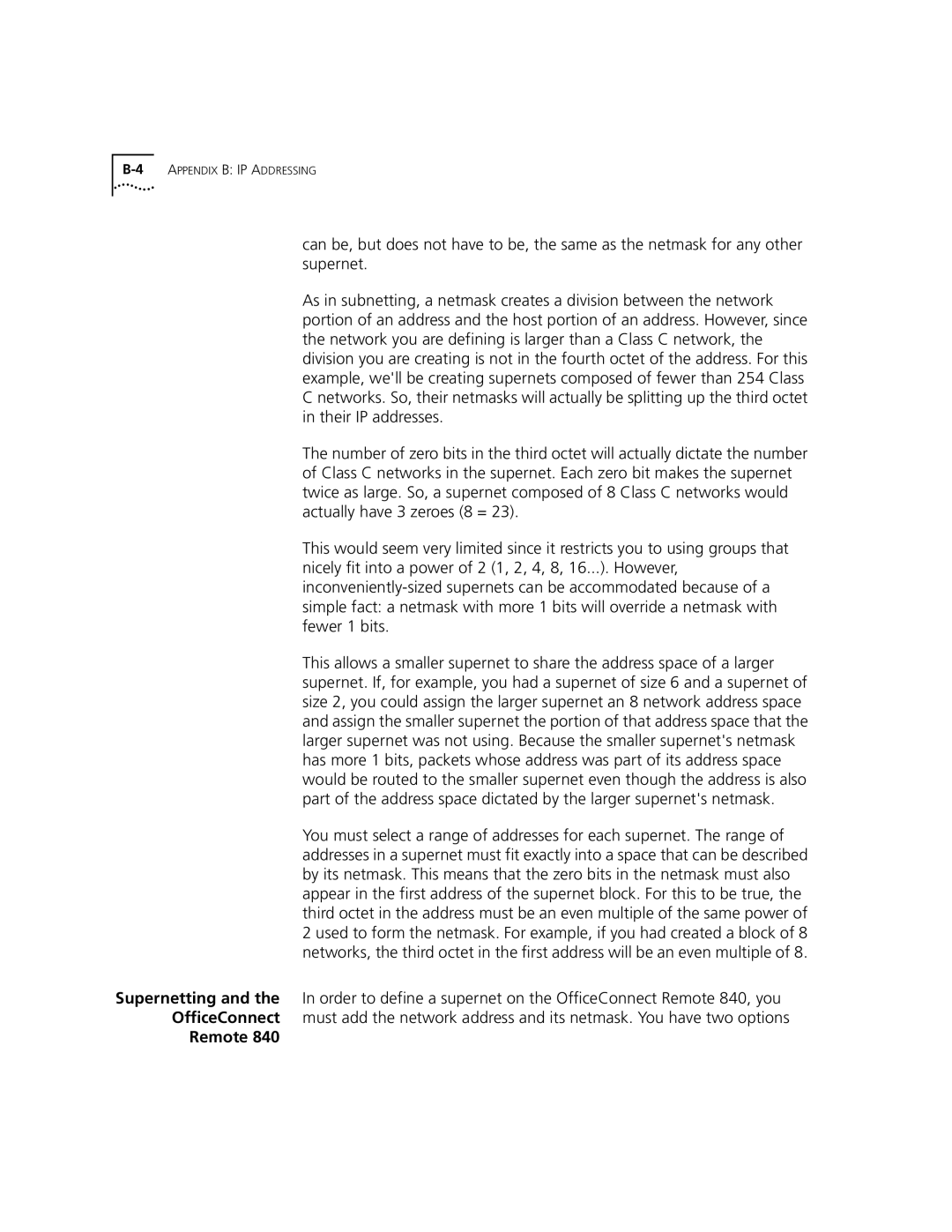can be, but does not have to be, the same as the netmask for any other supernet.
As in subnetting, a netmask creates a division between the network portion of an address and the host portion of an address. However, since the network you are defining is larger than a Class C network, the division you are creating is not in the fourth octet of the address. For this example, we'll be creating supernets composed of fewer than 254 Class C networks. So, their netmasks will actually be splitting up the third octet in their IP addresses.
The number of zero bits in the third octet will actually dictate the number of Class C networks in the supernet. Each zero bit makes the supernet twice as large. So, a supernet composed of 8 Class C networks would actually have 3 zeroes (8 = 23).
This would seem very limited since it restricts you to using groups that nicely fit into a power of 2 (1, 2, 4, 8, 16...). However,
This allows a smaller supernet to share the address space of a larger supernet. If, for example, you had a supernet of size 6 and a supernet of size 2, you could assign the larger supernet an 8 network address space and assign the smaller supernet the portion of that address space that the larger supernet was not using. Because the smaller supernet's netmask has more 1 bits, packets whose address was part of its address space would be routed to the smaller supernet even though the address is also part of the address space dictated by the larger supernet's netmask.
You must select a range of addresses for each supernet. The range of addresses in a supernet must fit exactly into a space that can be described by its netmask. This means that the zero bits in the netmask must also appear in the first address of the supernet block. For this to be true, the third octet in the address must be an even multiple of the same power of 2 used to form the netmask. For example, if you had created a block of 8 networks, the third octet in the first address will be an even multiple of 8.
Supernetting and the In order to define a supernet on the OfficeConnect Remote 840, you OfficeConnect must add the network address and its netmask. You have two options
